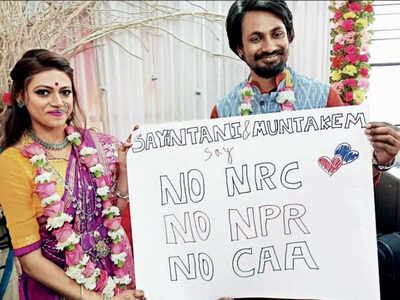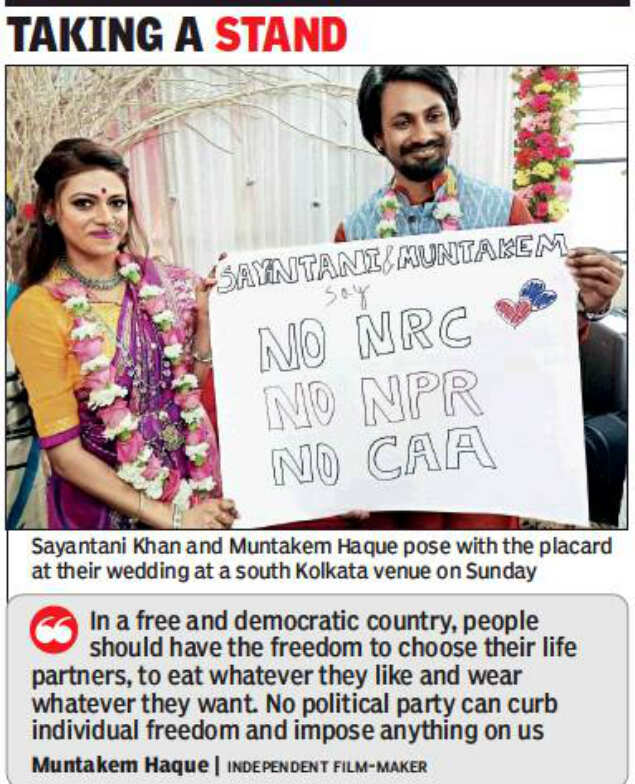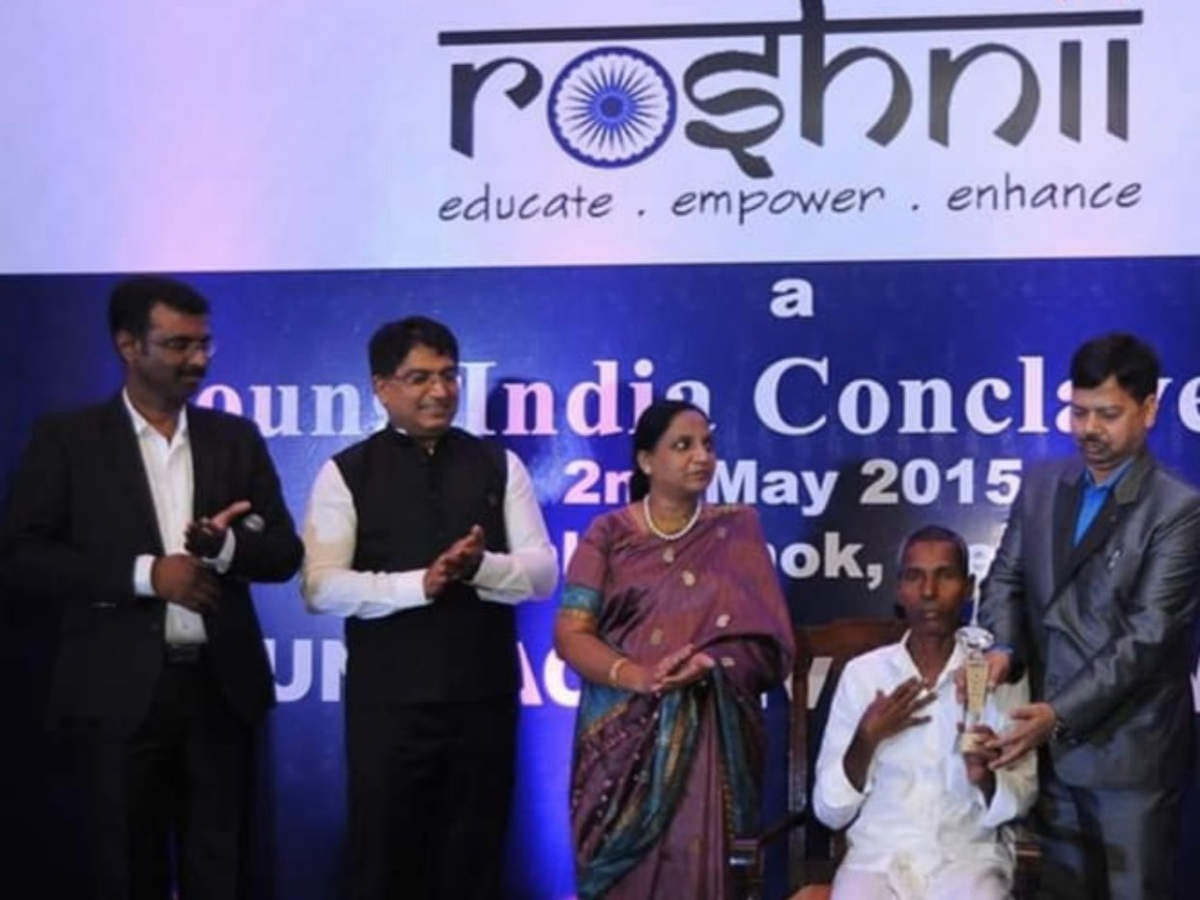
KOLKATA: Not just people on college campuses and the streets, even brides and grooms have joined the battle against NRC and CAA, turning wedding venues into protest sites. On Sunday, one such couple — Sayantani Khan and Muntakem Haque — tied the knot at a South Kolkata community hall, where they posed for pictures holding placard saying, “NO NRC, NO NPR, NO CAA”.
Borrowing the idea from the weddings in Kerala, the duo decided to highlight the anti-CAA protests and make an effort to make their guests aware of the issue. “People are protesting against this act in various ways. So we thought of this idea where we can spread awareness among a good number of people about the protests against NRC and CAA. Moreover, wedding pictures are often shared, and liked, on social media. So a protest and an awareness campaign would make it count even more,” Khan said.

Their act took their relatives and friends by surprise, but everyone participated in the protest. The couple got an overwhelming response from friends and relatives with everyone posing for photographs with the placard.
Both Khan and Haque are independent film-makers and met each other six years ago. They bonded over work, films, social issues and became friends, which later turned into a love affair. Religion was never an issue when they decided to get married and received immense support from their families. “We are lucky that we did not have to face any problems. However, there was some pressure, created by this discriminatory act, that we could feel whenever we went to speak to caterers, decorators and marriage registrars,” Khan said.
“NPR, NRC, CAA are discriminatory and are against the secular tenets of our Constitution. The government is trying to create a chasm between communities through these. Through our actions, we want to uphold the ethos of our country and send out a message that religion should not be used to divide people,” Haque said.
The couple’s friend Dwaipayan Banerjee felt it was a positive sign that the protest against CAA, NRC and NPR was not restricted to the streets and educational campuses, and has been accepted at social occasions that involve a mixed crowd.
Borrowing the idea from the weddings in Kerala, the duo decided to highlight the anti-CAA protests and make an effort to make their guests aware of the issue. “People are protesting against this act in various ways. So we thought of this idea where we can spread awareness among a good number of people about the protests against NRC and CAA. Moreover, wedding pictures are often shared, and liked, on social media. So a protest and an awareness campaign would make it count even more,” Khan said.

Their act took their relatives and friends by surprise, but everyone participated in the protest. The couple got an overwhelming response from friends and relatives with everyone posing for photographs with the placard.
Both Khan and Haque are independent film-makers and met each other six years ago. They bonded over work, films, social issues and became friends, which later turned into a love affair. Religion was never an issue when they decided to get married and received immense support from their families. “We are lucky that we did not have to face any problems. However, there was some pressure, created by this discriminatory act, that we could feel whenever we went to speak to caterers, decorators and marriage registrars,” Khan said.
“NPR, NRC, CAA are discriminatory and are against the secular tenets of our Constitution. The government is trying to create a chasm between communities through these. Through our actions, we want to uphold the ethos of our country and send out a message that religion should not be used to divide people,” Haque said.
The couple’s friend Dwaipayan Banerjee felt it was a positive sign that the protest against CAA, NRC and NPR was not restricted to the streets and educational campuses, and has been accepted at social occasions that involve a mixed crowd.
Get the app









